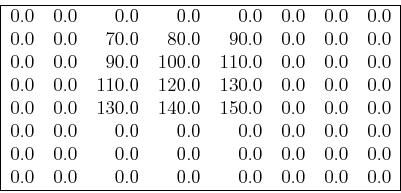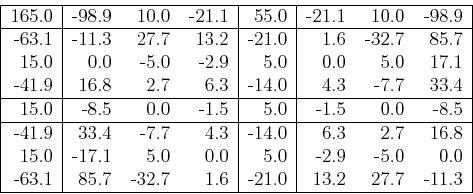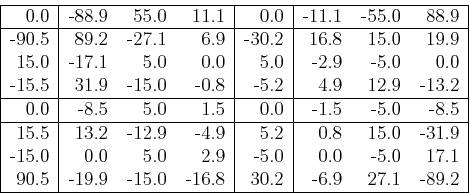


Next: Spectrum Centralization
Up: fourier
Previous: Matrix Form of 2D
Consider a real 2D signal (imaginary part is zero):
The real part of the spectrum:
The imaginary part of the spectrum:
Note that both the real and imaginary parts of the spectrum have some
2D symmetric property, indicating that half of the data is redundant.
In time domain, the imaginary part is all zero, and in frequency domain,
both real and imaginary parts are symmetric. This suggests that we can
improve the 2D DFT algorithm by cutting the required computation by
half.
Ruye Wang
2015-11-12



